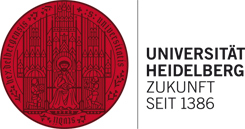Dr. Arnab Muhuri

Dr. Arnab Muhuri forscht zurzeit als Stipendiat der Alexander von Humboldt Stiftung am Geographischen Institut der Universität Heidelberg im Bereich der Hydrologie und Klimatologie. Sein Forschungsaufenthalt begann im August 2019 und wird noch bis Ende Juli 2021 dauern. Zuvor arbeitete er am Indian Institute of Technology (IIT) in Bombay in Indien und an der University of Tokyo und der Niigata University in Japan.
Der folgende Text steht nur auf Englisch zur Verfügung:
“I hold a Bachelor’s degree in Electrical Engineering and my postgraduate research fundamentally revolves around the area of development of Satellite Earth Observation Algorithms for Cryospheric Applications. I look at frozen sections of the Earth like snow covered mountains and glaciers with a combination of radar and optical satellites. During my PhD investigations at Indian Institute of Technology (IIT) Bombay, I was instrumental in the development of algorithms for observing seasonally changing state of snow cover over the Indian Himalayas with the Canadian Space Agency’s RADARSAT-2 synthetic aperture radar (SAR) satellite.
For my exemplary research contributions in the domain of Remote Sensing of Cryosphere I was conferred upon the “Award for Excellence in PhD Research” by the Honourable Prime Minister of India, Shri. Narendra Modi at the 56th Convocation of IIT Bombay, on the 11th of August 2018. In the same year, in recognition for my scientific contributions, I was awarded the coveted “Alexander von Humboldt Fellowship” by the Government of the Federal Republic of Germany. Post completion of my PhD I decided to spend some time with my parents and pursue my interest in endurance cycling, sailing, and mentoring a young generation of badminton players.
Presently my research interests are inclined towards the development of satellite-based Earth observation algorithms for monitoring snow cover in forested environments. This is quite a challenging problem statement in my domain and the Black Forest is the perfect place for such investigations. Almost 70% of the region is covered with a mixture of majorly coniferous and partly deciduous trees. Forests treat snow in a counterintuitive manner. At times it may elongate the snow accumulation time under the trees, spread over the forest floor, for a longer period, which means we will have delayed release of water into the rivers or it may even accelerate the snow melting process, sometimes even faster than the snow present over the open meadows.
The Black Forest is important from an economic perspective, particularly for this portion of Baden Württemberg. It sources several major European river systems directly or indirectly, particularly Rhein and Neckar, which are important rivers for inland trade, navigation, and recreation. It supports a significant volume of tourism and agriculture in the Rhein valley and an umpteen number of skiing resorts within its boundaries. Unfortunately, in the past couple of years the winters seem to have weakened down and this is particularly affecting businesses like skiing resorts, restaurants, lodges, and perhaps even the workshops that manufacture cuckoo clocks, a cultural icon of Germany. Therefore, I believe my investigations will pave the way for a new line of research for understanding the changing state of seasonal snow precipitation trend over the Black Forest and its collateral economic and social consequences.
There are very few research publications in my domain with focus on the Black Forest and therefore I saw an opportunity in introducing a new line of research in context of the importance of seasonal snow cover monitoring over the Black Forest due to its correlation with the economic and social impacts over this region and the adjoining Rhein river valley whilst I am in Germany at Heidelberg University.
I feel Germany is doing a great service to foreign researchers through bodies like the Alexander von Humboldt Foundation. The German scientific system is quite an inclusive system. I see people from all walks of life here, so the system does not preferentially favour only the economically endowed. This allows the talents sitting right at the bottom end of the economic pyramid to make their way up. The humanitarian, holistic, and unbiased viewpoint of the selection committees in such foundations in Germany inspires researchers to choose Germany as a destination to progress their ongoing research.
Recently I was invited as one of the speakers at the Annual Meeting of the Alexander von Humboldt Foundation 2020 in Bonn (https://www.humboldt-foundation.de/web/researchacrossborders.html). At the Humboldt Science Slam I highlighted my research and development activities over the Black Forest and the significance of satellite observations over such vast forested landscapes with respect to the economic impacts over the region and the Rhein river valley. The audience was composed of more than 1000 attendees including fellow Humboldtians, decision makers from the government, and industry personnel. My talk was applauded by the audience since it discussed the synergy between environment and economy, how the changing state of seasonal snow precipitation over the Black Forest can impact the economy over the Rhein river valley.”

